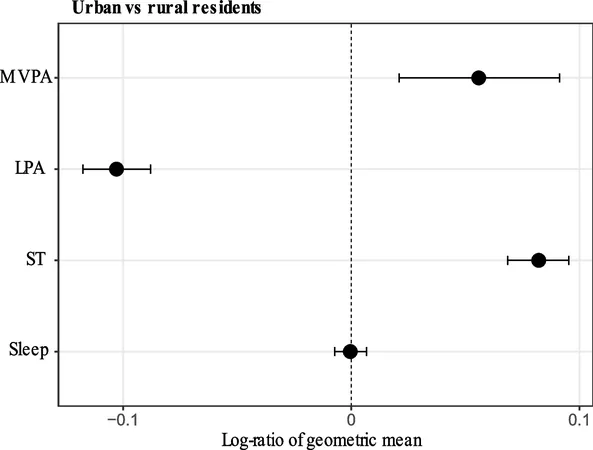
Unlocking the Secrets of Your Daily Habits: How Sleep, Exercise, and Screen Time Impact Your Mental Health!
2025-04-13
Author: Olivia
A New Dawn for Mental Health Research
In a groundbreaking study examining the connections between daily activities and mental well-being, researchers have illuminated the often-overlooked relationship between physical activity, sleep, and screen time with depressive symptoms in different living environments. This research unveils crucial distinctions between urban and rural residents that could reshape our understanding of mental health.
The Study Context: Who Are We Examining?
The study centered around 4,295 middle-aged adults from the Northern Finland Birth Cohort 1966. Participants wore an accelerometer—the ultimate fitness gadget—over 14 days to capture lifelike data on their sedentary time, light, and moderate-to-vigorous physical activity (MVPA) alongside self-reported sleep durations.
What Did They Find? Major Influencers on Mental Health!
The intriguing results indicated that the type and amount of activities throughout the day significantly impacted participants' mental health scores measured by the Beck Depression Inventory-II. For rural residents, more sleep relative to physical activity correlated with happier, lower depression scores, while urban dwellers fared better by reducing screen time. Simply reallocating time from sedentary activities to sleep or exercise had profound effects.
Why Sleep and Movement Matter!
The research highlighted compelling evidence linking healthier lifestyles—more MVPA and adequate sleep—with reduced depressive symptoms. For urban residents, shifting just 30 minutes from inactive screen time to either exercise or sleep led to noticeable improvements in mood. Meanwhile, rural adults thrived on greater durations of sleep and MVPA, suggesting the environment plays a critical role in mental wellness.
The Urban vs. Rural Divide: Different Strategies Needed?
Urban environments were associated with higher levels of sedentary behavior, while rural dwellers engaged more in light and moderate activities, bringing to light the necessity for tailored mental health interventions.
The Bigger Picture: Context is Key!
Considering the global prevalence of depression—affecting over 4.4% of the world’s population—the implications of this study are significant. With the COVID-19 pandemic exacerbating mental health challenges, understanding how everyday behaviors influence psychological well-being becomes paramount.
What’s Next? Future Research Directions
The study's insights serve as a clarion call for further exploration into how urban and rural settings uniquely shape mental health outcomes and the underlying mechanisms at play. The call for longitudinal studies is clear to determine causal relationships.
Unlock Your Best Mental Health!
As we deepen our understanding of how our daily activities mediate our mental health, individuals can make informed lifestyle choices—prioritizing sleep and reducing screen time could be key strategies not just for urban dwellers but for everyone seeking to bolster their mental resilience.









 Brasil (PT)
Brasil (PT)
 Canada (EN)
Canada (EN)
 Chile (ES)
Chile (ES)
 Česko (CS)
Česko (CS)
 대한민국 (KO)
대한민국 (KO)
 España (ES)
España (ES)
 France (FR)
France (FR)
 Hong Kong (EN)
Hong Kong (EN)
 Italia (IT)
Italia (IT)
 日本 (JA)
日本 (JA)
 Magyarország (HU)
Magyarország (HU)
 Norge (NO)
Norge (NO)
 Polska (PL)
Polska (PL)
 Schweiz (DE)
Schweiz (DE)
 Singapore (EN)
Singapore (EN)
 Sverige (SV)
Sverige (SV)
 Suomi (FI)
Suomi (FI)
 Türkiye (TR)
Türkiye (TR)
 الإمارات العربية المتحدة (AR)
الإمارات العربية المتحدة (AR)